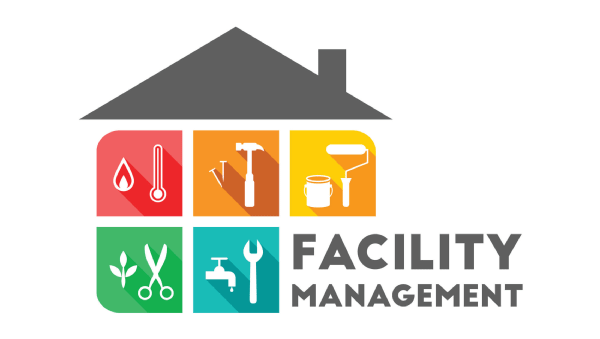Advantages and Disadvantages of Facility ManagementFacility management, also called Facilities management, is a professional, dedicated management discipline aiming to effectively and efficiently deliver logistics and other services connected with real property and buildings. 
It cuts across multiple disciplines to ensure comfort, functionality, and efficiency of the constructed environment by connecting place, processes, people, and technology as laid down by the International Organisation for Standardization. It is a certified professional by the Global Facility Management Association's member organization. The word "facilities management" was developed by Ross Perot, Electronic Data System, and IBM alumnus, in context with network management of Information technology systems; later, it increased to cover all elements of commercial space management. It is integral to the process of strategic organizational planning that was put in during the 1979 conference supported by Herman Miller. After the conference, the furniture manufacturer inaugurated Faculty Management Institute (FMI) in its headquarters in Ann Arbor, Michigan. The National Facility Management Association (NFMA), developed in 1980, separated the entire profession from a single enterprise. NFMA, in 1982, transformed itself into International Facility Management Association. It is an interdisciplinary business function that aims to coordinate demand and supply services and facilities to private and public organizations. ScopeIt has been divided into two areas:
IFMA has recognized 11 competencies of facility management, and they are:
British Institute of Facilities Management, now known as the Institute of Workplace and Facilities Management, goes through the European definition and its standards of qualification framework and provides a career path curriculum from school leaver level to master's degree. Advantages of Facility Management1. Better Business Decisions A huge benefit of facility management software is that it offers knowledge to inform you about the overall business strategy. In the contemporary world, data-driven companies are emerging at a large scale. Success depends upon capturing and analyzing the data. It helps recognize potential cost savings and areas of risk with the help of facilities and offers real-time data on the employees and assets. This important component can be instituted in one place and will be easily accessible and guide you to make an informed decision. It also helps generate customs and capture important trends for the decision maker and can play a significant role in cost saving and enforcing efficiencies in the management. 2. Ensuring that the Premises and Tenants Remain Safe When it comes to real state spaces, many regulations and codes need to be abided by, and Facility managers are experienced and informed about these procedures. They will be key in bringing valuable expertise to your space. The manager will be accountable for the equipment to work smoothly. 3. Keeps Efficiency in the Property System and Services The significance of facilities management services encompasses limits beyond just maintaining the day-to-day activity; the top facility management professionals will also include upkeep and maintenance. It will keep your equipment operating efficiently and lower the likelihood of a breakdown. 4. Asset Tracking and Management The facility manager aids you in creating a framework that would allow you to administer your high-value assets. It can be breakroom appliances, HVAC, uniforms, mobile devices, Information Technology related resources like software licenses, data infrastructure, and copiers. The facility manager helps form workable processes that cover maintenance, operation, renewal, procurement, and retirement of assets. The facilities manager's oversight helps you simplify the procurement and budgeting process. Supplies, maintenance, repairs, and other expenses can be instituted into other categories. It offers you a system that can give you instant sight. 5. Space Optimisation The key aspect of facilities management is space optimization. The facility manager helps in determining the efficient utilization of the facility and making suggestions for the effective utilization of the service. It is an attempt to claim your cost per square foot and enhance your revenue as a business. Disadvantages of Facility Management1. Cost Control Facility managers in many corporates face the challenge of doing more work with less. To counter this challenge, they meticulously deal with budget constraints, and the method of doing this are:
2. Time Management Facility managers must do much work daily, from attending meetings, responding to urgent emails, coordinating teams, and consulting vendors and suppliers. Workers are full of questions and unimaginable issues that must be addressed effectively. 3. Addressing a Failure Asset maintenance requires a rigorous data flow, the most complex process, and an instant call to action. It is one of the most complex processes. 4. Maintenance of Old Facilities and Equipment With time, the building structures and equipment become old and technical problems begin. And some of it becomes inevitable to replace and have to take proper measures for maintenance and prevention. 5. Sustainable Workspace Supply chain activities can affect the environment negatively, and the impact of climate change on this subject is a heated topic for debate. Cargo transportation releases poisonous gases into the environment, and several concerns have been raised. 6. Inefficient Facility Compliance Many corporates face the issue of complex compliance operations and demand extra time to execute them. In companies with physical reporting and compliance with the rules, the capability to perform in other fields is hindered. |
 For Videos Join Our Youtube Channel: Join Now
For Videos Join Our Youtube Channel: Join Now
Feedback
- Send your Feedback to [email protected]
Help Others, Please Share










